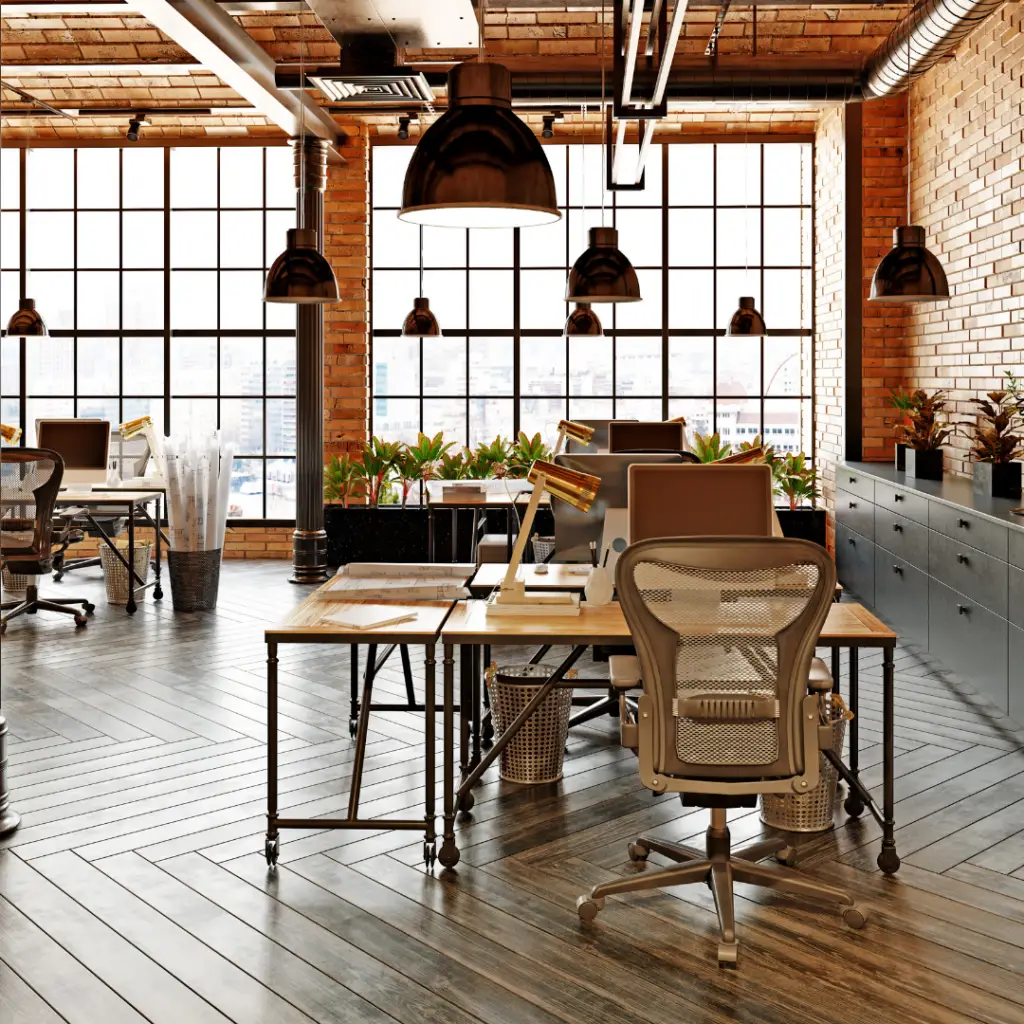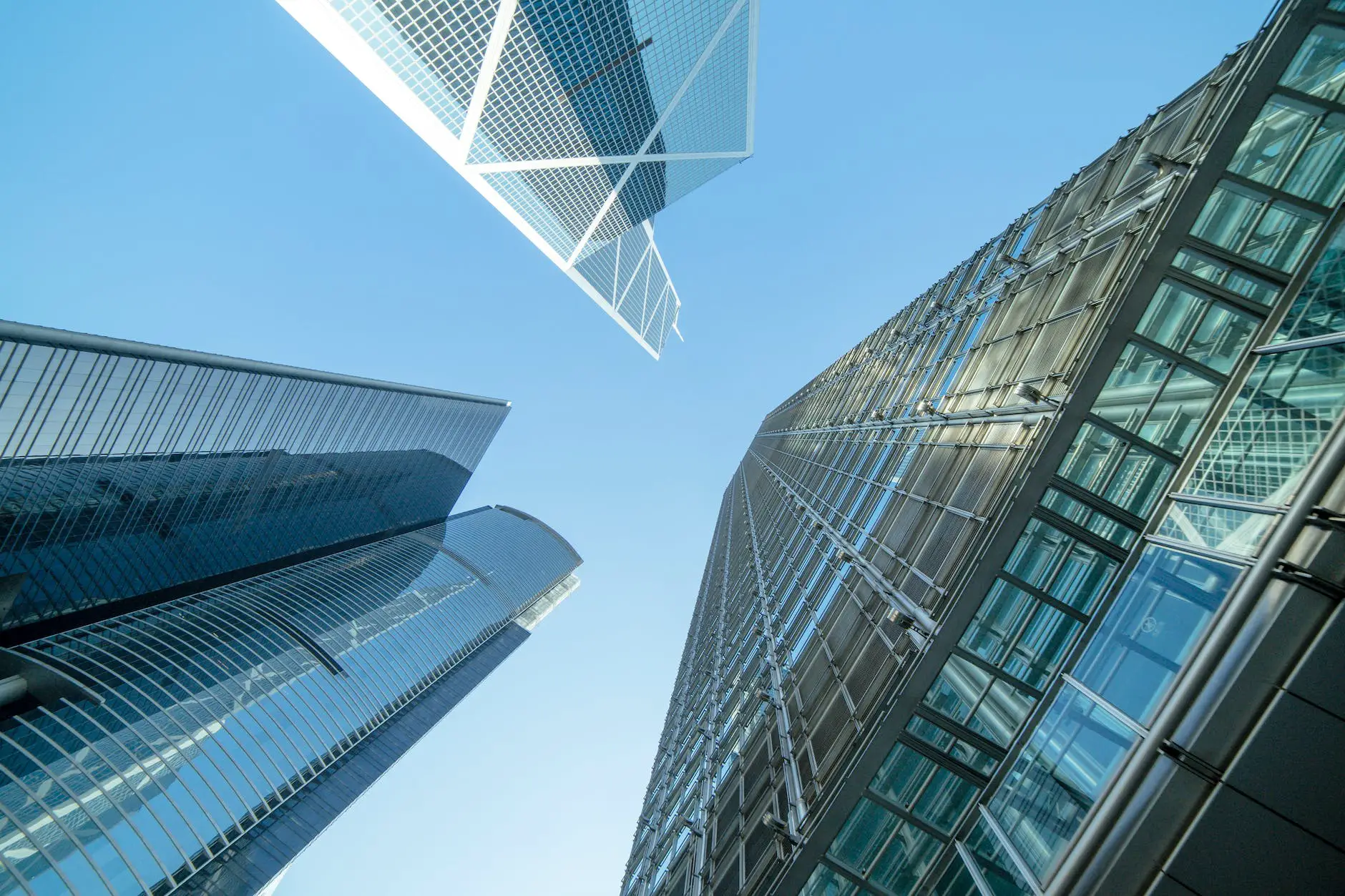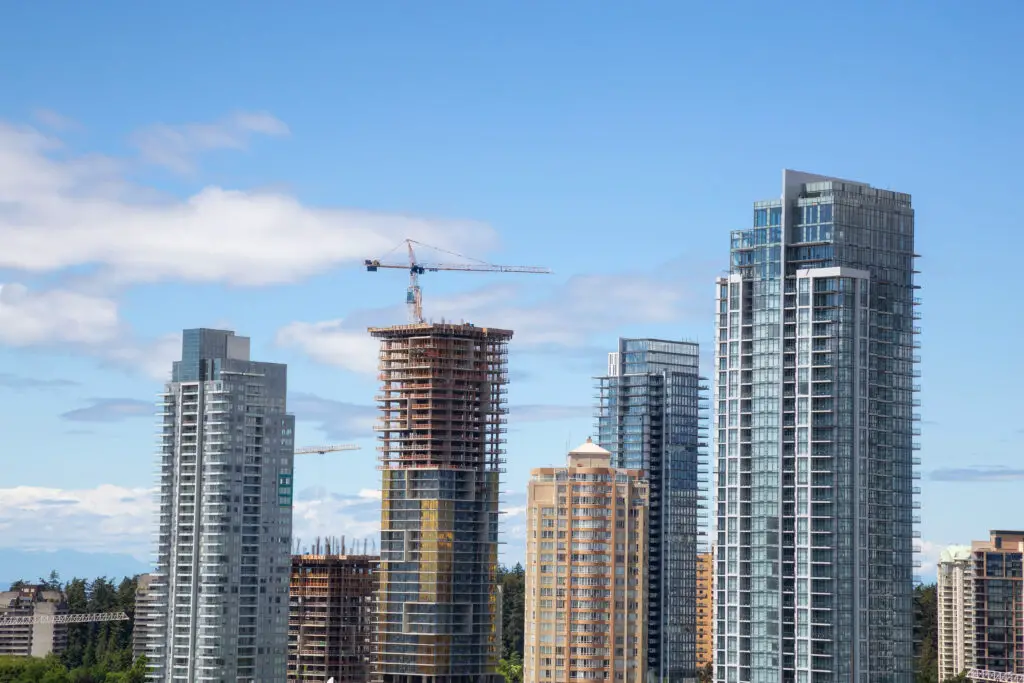Investing in commercial property in Singapore can be rather challenging and difficult at times. Oftentimes, the licensing and the regulation can be quite a turn-off since business owners hate paperwork more than anything else. Right?
If this applies to you, relax!
The complete guide to purchasing a business property in Singapore is available here. Whether you are an F&B business owner, a foreigner looking to set up a company office, or just want to invest in commercial property. Then this article is for you.
What is Commercial Real Estate?

Singapore has three different kinds of commercial properties: retail, industrial, and hotel.
Among retail real estate are stores, shophouses, and malls. These types of properties require the most amount of time to understand and work with as they require stricter regulations. From fire safety licensing to food health safety licenses, there are quite a lot of regulations to look at.
Workspaces like B1 (Offices, warehouses) and B2 (Factories) are referred to as industrial. Depending on your workplace intensity, it may require a larger space of safety requirements to handle certain situations. For example, if your business is a food packaging firm for a bakery stall, it will require heavy machinery which is classified under the B2 workspace category.
Hotels include both hotels and dormitories. While not as popular as compared to other businesses, they do still require a number of licenses and pass certain regulations to set up. For example, in practice, dormitory rooms can only have 12~16 pax per room to give dorm workers more space to work around.
What are some uses for commercial property?

Commercial property owners have the same options as those who own homes.
They can either use the space for personal purposes or rent it out to tenants to earn a monthly rental income.
Unlike residential properties, commercial properties have limited supply and thus typically easier to find rental.
Here are some common uses for commercial properties in Singapore:
- Office Space: Many commercial properties are used as office spaces for businesses, ranging from small startups to multinational corporations. The Central Business District (CBD) in Singapore is a hub for these offices.
- Retail Spaces: Shopping malls, standalone shops, and retail spaces within mixed-use developments are prevalent in Singapore. They cater to both local and international brands.
- Food and Beverage Outlets: Singapore has a vibrant food scene with numerous restaurants, cafes, and bars. These establishments can be found in commercial properties, particularly in popular dining districts.
- Warehouses and Industrial Spaces: Industrial and logistic parks provide space for manufacturing, warehousing, and distribution operations. These are crucial for Singapore’s role as a regional trading and logistics hub.
- Hotels and Hospitality: Singapore’s tourism industry is growing, and commercial properties are often converted into hotels, serviced apartments, and hostels to accommodate travelers.
- Event Venues: Some commercial properties are designed for events and conferences, serving as venues for exhibitions, trade shows, meetings, and other gatherings.
- Medical Facilities: Healthcare providers operate clinics, medical centers, and specialist facilities in commercial properties, offering a range of medical services.
- Educational Institutions: Commercial spaces are used by educational institutions, training centers, and tuition centers. This includes private schools, language centers, and more.
- Co-Working Spaces: With the rise of the gig economy and startups, co-working spaces have become popular, offering flexible office solutions to businesses and freelancers.
- Entertainment and Leisure: Commercial properties can house entertainment options like cinemas, arcades, gyms, and recreational centers, providing leisure activities for residents.
- Banking and Financial Services: Many banks and financial institutions operate branches and offices in commercial spaces, especially in financial districts.
- Art Galleries and Cultural Centers: Commercial properties can serve as galleries and cultural centers, showcasing art and cultural events.
- Technology Hubs: Singapore aims to be a technology and innovation hub, so commercial spaces can be used by tech companies, incubators, and accelerators.
- Auto Dealerships: Commercial properties are used for car showrooms and dealerships, catering to the automotive industry.
- Car Parks: In densely populated areas, commercial properties may include multi-story car parks to accommodate the high number of vehicles.
- Serviced Apartments: Commercial properties are often converted into serviced apartments to cater to short-term and long-term accommodation needs for expatriates and travelers.
- Data Centers: With the increasing demand for data storage and processing, some commercial properties are converted into data centers to support the IT infrastructure.
These are just a few examples of the diverse range of uses for commercial properties in Singapore, reflecting the city-state’s dynamic and growing economy. The utilization of such properties continues to evolve to meet the changing needs of businesses and residents.
Who may purchase a business property?

There are no limits on who can purchase commercial property, in contrast to residential property. Foreigners, Singaporeans, and Permanent Residents (PRs) can all buy commercial real estate.
Commercial real estate can be purchased in Singapore by foreign businesses that are registered elsewhere.
This is the reason why many businesses refer to Singapore as one of the best places to settle down their business.
Pros of Buying Commercial Property

Let’s now examine the advantages and disadvantages of buying commercial real estate.
Additional Buyer Stamp Duty (ABSD) is not applicable
You are exempt from paying ABSD for commercial property even if you already own a home. For those who wish to invest in real estate but do not want to pay more for ABSD, the fact that the ABSD for residential property can range from 17% to 35% is a big advantage.
No Seller’s Stamp Duty (SSD) is applicable
Owners must pay a tax known as seller’s stamp duty when they sell their property within the first three years of ownership. You don’t have to pay SSD for commercial property, as opposed to industrial property.
Industrial property includes factories and warehouses. According to IRAS, SSD is payable at the rates shown in the table below for industrial property bought on or after January 12, 2013.
| Holding Period | SSD rate (on the actual price or market value, whichever is higher) |
| Up to 1 year | 15% |
| More than 1 year and up to 2 years | 10% |
| More than 3 years and up to 4 years | More than 2 years and up to 3 years |
| More than 3 year and up to 4 years | No SSD payable |
The SSD was introduced in Singapore to prevent buyers from manipulating the markets and as a prevention for buyers to trade commercial real estate.
Cons of Purchasing Commercial Real Estate

There are more dangers when it comes to commercial real estate investing. Cases such as the Covid-19 pandemic lockdown have shown us that the real estate investment space can change overnight with unexpected turns and it made many businesses realize the importance of diversifying to safer assets.
High rate of property taxes
Commercial and industrial real estate used for non-residential purposes is taxed at a flat 10% of its Annual Value (assumed annual rent) rate. The 10% tax rate would apply even if you bought the property for your own personal use.
Unable to finance the property with CPF
Contrary to residential real estate, where you may use your CPF funds for a down payment and a mortgage, you cannot use CPF to buy commercial real estate. In other words, because the down payment and mortgage must be made in cash, you would need a larger initial cash investment to finance the house.
5 Considerations when Buying a Commercial Property
If you are looking for a commercial property for your business, here are some more elements to think about while purchasing commercial real estate.
1) What kind of commercial property ought I to select?
Commercial real estate is divided into three categories: retail, industrial, and hotel. They differ in a wide range of areas, including leasing, pricing, features, hazards, and rewards.
Consider shophouses. Numerous shophouses in Singapore have the designation of conservation area. There are limitations and procedures protecting the property to preserve its distinctive architectural features. The intended use, alteration, and renovation rules are a few of them. Maximum Retention, Sensitive Restoration, and Careful Repair are the “3R” Principles that conservation shophouses are supposed to adhere to. It is necessary to preserve and maintain the original structure and architecture. Only in extreme cases can URA permit selective replacement.
When choosing the sort of property to buy, buyers should take these limitations into account.
2) How important is the location to you?
Every real estate choice is heavily influenced by location. Do you prefer that the condo be close to MRT stations? Expressways? Or do you want to locate your factory in a rural area?
a retail shopping center, as an example. Contrast an Admiralty neighborhood mall with one on Orchard Road. Orchard Road is the first place that people think of when they want to shop. Renting your home to tenants in Orchard Road would undoubtedly be simpler for this reason.
On the other hand, given the nature of the nearby buildings, regions like Changi or Woodlands may be better choices for you if you’re searching for a place to house your manufacturing.
3) What is the intended use of the property?
The URA Master Plan details the planned use and regulations for each commercial property. Knowing what it is intended for is crucial because it is hard to change.
For instance, you must first apply for planning clearance from URA and wait for approval before making the change if you wish to alter the property’s use from retail to office and it hasn’t already been granted.
4) How long has the property been owned?
For commercial real estate, there are several different leasehold tenures available. Due to Singapore’s limited land supply, this is limited and runs from 30 to 999 years.
For the benefit of small business owners, shorter leases of 30 and 60 years are now offered. The government has the freedom to redevelop the area if necessary thanks to the shorter lease.
5) How will the property be financed?
Depending on whether you are purchasing commercial real estate as a person or a corporate entity, financing will vary. The Total Debt Servicing Ratio (TDSR) determines how much you are permitted to borrow in loans.
The TDSR for individuals is set at 60% of monthly income. The annual net operational income and creditworthiness of corporate entities will determine their TDSR. This implies that the loan amount would vary depending on the company. Debt owed by the business will also be taken into account.
Loans for commercial real estate typically have higher interest rates than loans for residential real estate. Here’s a piece of advice: Increase your down payment if you want to lower the total amount of interest you pay!
Although purchasing commercial real estate may initially appear scary, you may now be eager to embark on this ownership adventure after learning more about it. Of course, you should take your time and fully comprehend the commercial sector before moving further.
Is Commercial Real Estate Investing Tough?
While it is not widely known about commercial property investment since many Singaporeans are not business owners. Commercial property investing can be a great way to build up your assets as compared to residential real estate investments since they are less heavily taxed.
If you would like to learn more about property investing, be sure to check out some of our articles here or have a chat with me on Calendy by adding in your timeslot.

Hope you have gotten a rough idea of what you can look out for.
If you would like to know more what other potential growth happening around the area, be sure to contact Aaron or fill in your contact information here.
Aaron Oon is a Senior Associate Director at Propnex and Founder of Real Estate Insider. A consistent Top Producer in the competitive world of real estate, Armed with a Finance degree from NUS, Aaron is more than just a real estate agent; he’s a strategic thinker and a creative problem solver.
In his company Real Estate Insider, he shares the latest market updates and trends happening in the world and Singapore to keep us within the loop.

FAQ
What is considered a commercial property in Singapore?
Commercial properties in Singapore include office buildings, retail shops, industrial warehouses, and mixed-use developments that are primarily used for business purposes.
Who can buy commercial property in Singapore?
Commercial properties in Singapore are open to both local and foreign investors, subject to certain restrictions and approval requirements, particularly for residential properties within mixed-use developments.
Are there any restrictions on foreign ownership of commercial property?
Foreign individuals and entities can purchase commercial properties in Singapore, but they might need approval from the Singapore Land Authority (SLA) for certain types of properties, such as vacant land and some shophouses.
What are the key commercial districts in Singapore?
The primary commercial districts in Singapore are the Central Business District (CBD), Marina Bay, and Orchard Road, known for their concentration of office spaces, retail outlets, and entertainment options.
What are the key commercial districts in Singapore?
The primary commercial districts in Singapore are the Central Business District (CBD), Marina Bay, and Orchard Road, known for their concentration of office spaces, retail outlets, and entertainment options.
How is the price of commercial property determined in Singapore?
The price of commercial property is influenced by factors like location, size, lease terms, and market conditions. Property valuations are often done by certified appraisers.
What are the typical rental rates for office spaces in Singapore?
Rental rates for office spaces vary depending on the location, size, and quality of the property. In the CBD, prime office spaces can be quite expensive, with rates typically quoted per square foot per month.
Are there taxes on commercial property in Singapore?
Yes, there are property taxes, including the Annual Value (AV) tax, which is payable by property owners. Property rental income is also subject to income tax.
What is the leasehold duration for commercial properties in Singapore?
Leasehold durations vary, but most commercial properties have lease tenures of 30, 60, or 99 years. Renewal of leases is possible, subject to negotiation and terms.
What is the process for buying a commercial property in Singapore?
The process involves finding a property, negotiating terms, conducting due diligence, signing a Letter of Intent (LOI), and then finalizing the Sale and Purchase Agreement (SPA).
Can I use a commercial property for residential purposes?
In most cases, using a commercial property for residential purposes is not allowed. However, some mixed-use developments may have residential components.




